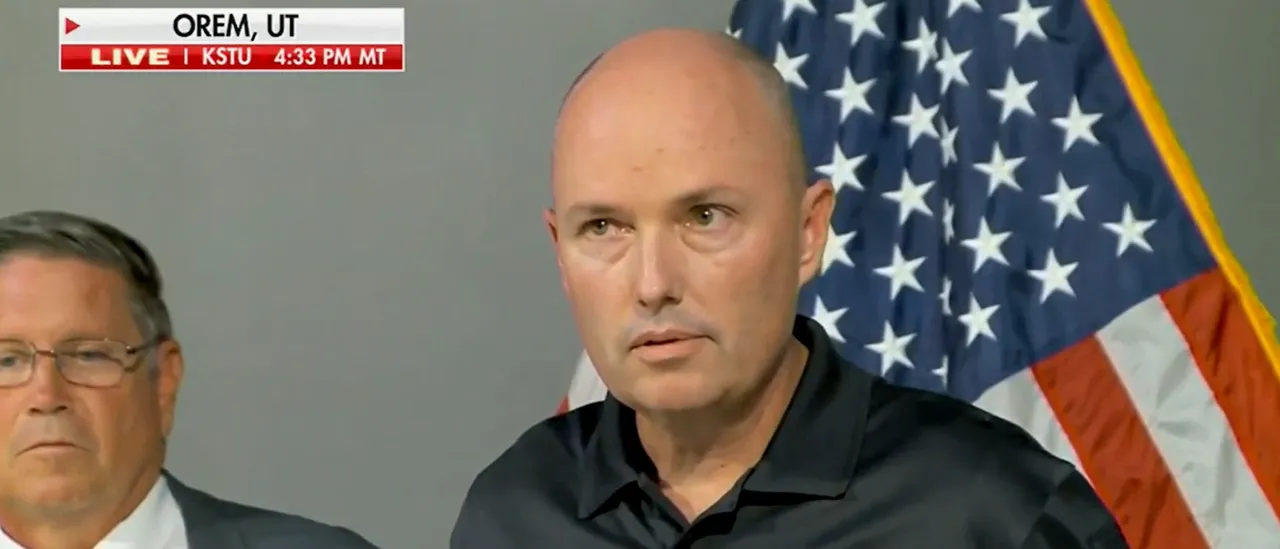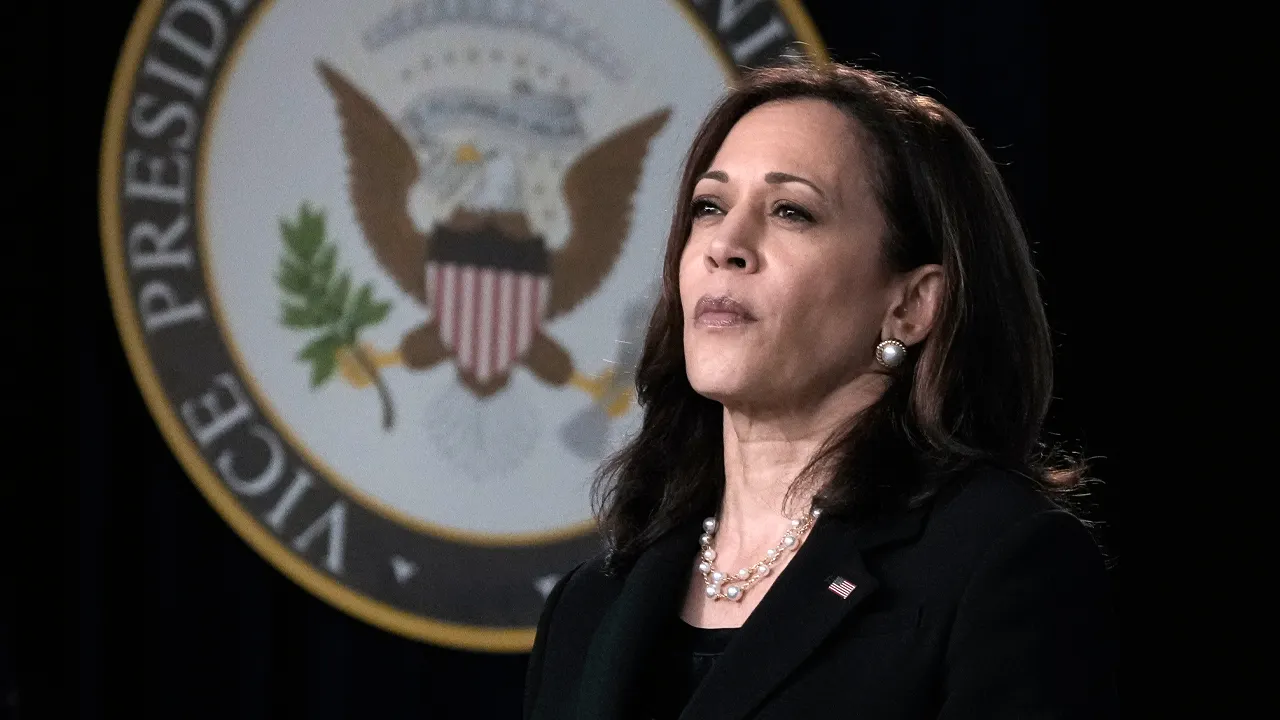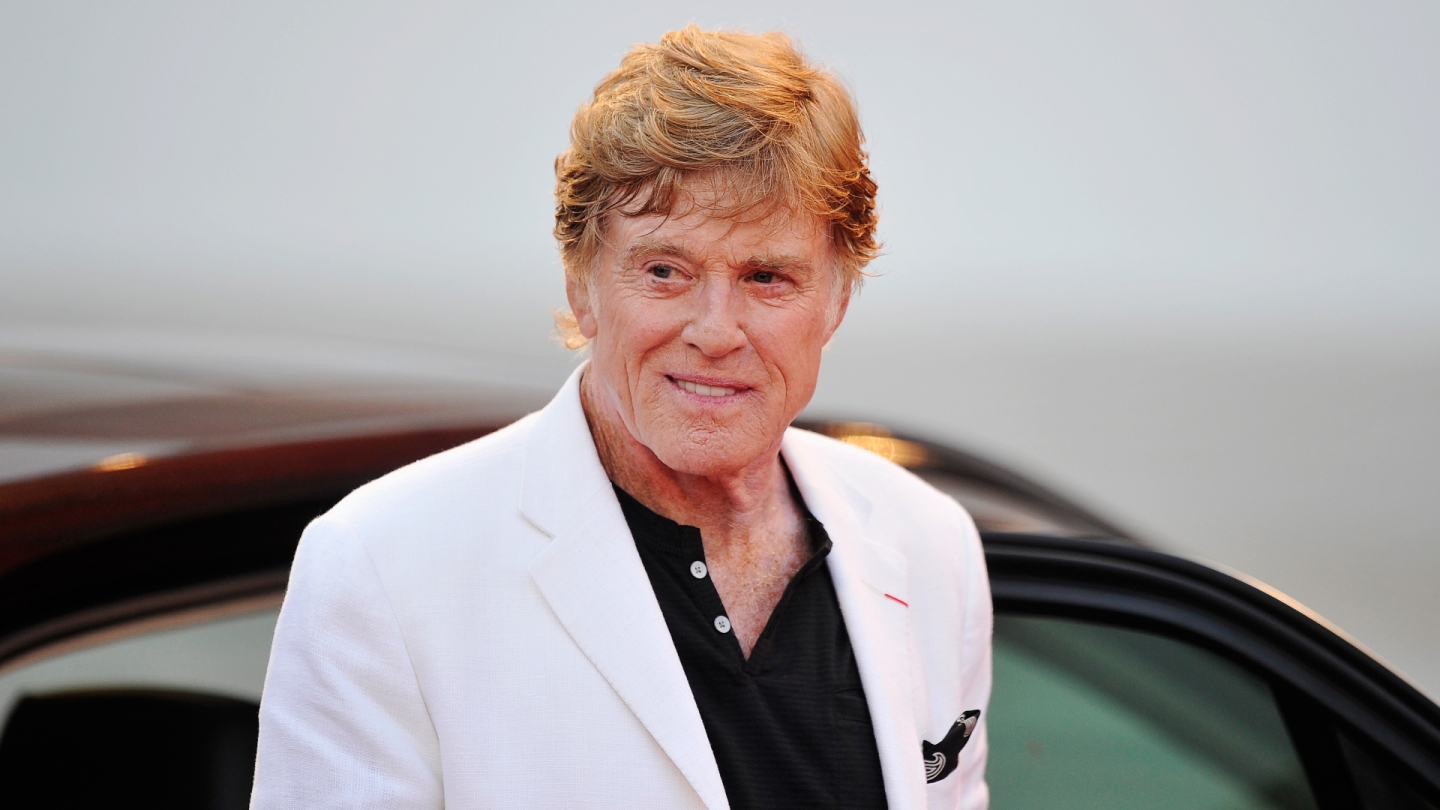The old Etonian, his president father and his imprisonment and brutal torture in an African jail
By Claudia Cockerell
Copyright standard

In November 2023, Noureddin Bongo was in the bowels of his grandfather’s presidential palace, being offered vodka by his captors. Except instead of giving it to him to drink, they held his head back and poured it down his nose until he told them he was going to die if they continued. “Then they start tasering me on the stomach — this is where I’ve got the scars,” Noureddin says.
Eton-educated Noureddin moved from Gabon to the UK aged nine and has spent the majority of his life here. Now 33, he claims to have always been spotlight averse. Yet back in Gabon, everyone knows his name. For 56 years a Bongo ruled the central African country; first, Noureddin’s grandfather Omar, followed by his father Ali.
Noureddin identifies as British and professes to have no interest in the politics of his homeland. Yet following a coup which toppled his father’s presidency in 2023, he was arrested and held up by the new government as a symbol of his family’s wrongdoing.
A behemoth covered in shimmering gold, the presidential palace sits on the seafront of Gabon’s capital, Libreville, looking more like a hotel in Las Vegas than the seat of a president. It was built in the 1970s by Omar Bongo at a reported cost of $250 million. As a child, Noureddin found the large, empty rooms and the abundance of security overwhelming. As an adult, it became a place where he survived nearly two years of psychological abuse and torture, squalid conditions and no contact with his family, including his three young children.
“I can get lost in my words,” Noureddin says when we meet for his first interview since his imprisonment. “My therapist told me it’s because I was in a situation where I had to carefully think of every word I would say, so sometimes I just slow down.” He presents as a classic entrepreneur, wearing a blue suit and a health-tracking Oura ring, which he swivels absentmindedly as he talks. He speaks in a public school cadence where his words often blur together. His French wife, Léa, is sombre and composed, reaching for her husband’s hand as he recounts the most gruesome details of what happened to him.
Growing up in Libreville, Noureddin was only vaguely aware that his grandfather led the country. He saw Omar as a “mythical character” who was mainly interested in his grades. “Even in my own family, I was Sylvia’s son. They would call me the son of the white woman,” he says.
Noureddin’s mother Sylvia is a French woman who moved to Gabon aged 11. She and Ali met in their twenties, though Noureddin says they weren’t together when he was a child. Sylvia worked as an estate agent and raised Noureddin as a single mother, in what he describes as a “very, very ordinary” childhood in Libreville before leaving for Europe.
The Bongo family tree is sprawling. Omar Bongo fathered an estimated 54 children and has hundreds of grandchildren. Unlike many of his cousins, Noureddin had a “very French upbringing” and did not speak any indigenous Gabonese languages.
Sylvia had no desire for her son to follow in his father’s footsteps. She and Ali got back together in 1999, and in 2001 she and Noureddin moved to England for him to attend Summer Fields prep school, before he was sent to Eton. His peers included the Olympic rower Constantine Louloudis and Princess Margaret’s grandson Samuel Chatto, and he settled easily into life in the gothic buildings and green playing fields.
Summers were spent back in Gabon. “I felt like a stranger in a strange land sometimes,” Noureddin frowns. At one of his grandfather’s birthday parties, he was pulled in to dance by the crowd, only to be met with mockery. “He dances like a white guy!” they laughed.
Gabon was a French colony until it gained independence in 1960. In 1967, Omar Bongo was installed as president with France’s help. Under his rule, the country became one of the world’s largest exporters of crude oil. “He clearly enriched himself a great deal from the oil wealth of the country,” says Dr Jeremy Rich, an expert in Gabonese history.
Omar lived in unbridled luxury and gave his children plum roles in his government. Until 2009, his daughter Pascaline was director of the presidential cabinet, while Ali was minister of defence. Omar’s rule was often described as dynastic and kleptocratic: state coffers were plundered and elections were marked by consistent irregularities. Yet Noureddin brushes over the criticisms of his grandfather. “It always seemed to me that people thought he was doing a great job,” he says. “A lot of people told me how he was a man of peace.” While civil wars raged in neighbouring countries, Gabon remained conflict-free. Part of the reason for this, Rich explains, is that Omar preferred to deal with his opponents through bribery over bloodshed.
Noureddin was 17 when his father became president after Omar’s death in 2009. A former funk singer who was educated in France, Ali styled himself as a moderniser. According to Noureddin, he wanted Gabon to become “the lung of the world”, shifting from an oil-producing country to a green superpower. Yet his people often felt left behind. “They would say, ‘Ali Bongo prefers elephants to the Gabonese’,” Noureddin says.
Despite consistently winning elections, the Bongos were not popular. According to the NGO Freedom House, Ali maintained political dominance through “a combination of patronage and repression”, while electoral fraud was rife.
In late 2018, Noureddin was living in Victoria, London, with Léa and their children. He was working as a project manager and heading up an investment fund focused on businesses in Gabon. Then he received the news that his father had had a stroke. Ali was not seen in public for months, leading to speculation that he was unfit to run the country. “My father felt very distrustful of the people around him and felt coups coming from all around,” says Noureddin. Later that year, Ali pleaded with him to move back to Gabon and become his adviser.
“I’m a loyal son, so I told Léa we need to go support him,” he says, wincing at the memory. “We actually cried that day.”
In December 2019, Noureddin was hired as his father’s general coordinator of presidential affairs. For critics, this was another instance of Bongo nepotism. Yet Noureddin describes his role as “a mix between secretary, assistant and project manager, nothing more than that.” After helping with various projects, including Gabon’s response to the pandemic, Noureddin resigned in 2021 and moved back to London with his family. “It just wasn’t an environment I enjoyed,” he says.
Life returned to normal until the summer of 2023, when the family were back in Libreville to support Ali over the elections. In the early hours of August 30, it was announced that Ali had been re-elected with 64.27 per cent of the vote.
Noureddin and Léa were at their house, playing table football with friends when they heard a disturbance outside. Noureddin opened the door to military vehicles and heavily armed members of the Republican Guard. “They were like, ‘We need to move now. General Oligui has ordered you to be put to safety because there’s been an attack against the Republican Guard’,” Noureddin recalls. Though he sensed danger, he was reassured at the mention of Oligui’s name. Brice Oligui Nguema was his father’s cousin and right hand man. “I trusted Oligui completely. He was very protective of me and my family — he’d come to my kids’ birthdays.”
But then the guards bundled Noureddin into a vehicle by himself and told Léa and the children to go back inside. “This guard pushes me very violently and shouts, ‘It’s the end, you’re finished!’”
After the vote had been counted, a soldier appeared on TV to say that the election “did not meet the conditions for a transparent, credible and inclusive ballot”. He added that they were seizing power. The coup had been led by General Oligui, who ordered Ali Bongo to be placed under house arrest.
When the sun rose, the Gabonese people were celebrating in the streets of Libreville, waving flags and singing songs. Noureddin was taken to the Republican Guard’s headquarters within the presidential palace complex, where he was lined up with other Bongo loyalists and beaten.
The men were then led down to a basement, forced to strip down to their underwear and taken to two by two metre concrete cells which appeared to be hastily converted storage cupboards, filled with broken glass and the stench of urine. “I was lucky I was in one by myself,” says Noureddin. It was completely dark and Noureddin lost sense of time. He says military men would come in, threatening to rape his wife and mother.
Noureddin had no news of his family and was fearful for their safety. His voice cracks as he remembers thinking, “I can’t protect them, I don’t know where they are.” Yet there was one thought going through his mind: “I need to stay strong for my kids.” He began doing press-ups and walking laps of his cell.
It was only after two weeks that Noureddin was allowed to call his wife. He remembers repeating, “I’m so sorry, I’m so sorry” to her. He begins to cry at the memory, recalling that Léa responded, “whatever time it takes, I’ll be there”.
After three weeks, Noureddin was moved to the Central Prison of Libreville. Throughout Ali’s presidency, it was a place notorious for overcrowding, poor treatment of prisoners and slum-like conditions. In 2018, Amnesty International called for an investigation after a political opponent of Ali’s was brutally beaten by guards and denied access to his family.
Noureddin and the other inmates lived in pitch darkness, subsisting on a meagre daily meal of rice and a single sardine. “When the guards leave, the other doors open and you see dozens of people just piled up onto each other in these small cells,” Noureddin says. “I don’t know how long they’ve been there, but they’re broken human beings. All they did was sing psalms and talk about Jesus.”
Meanwhile, Léa was being held by guards in the house with the children. Days after the coup, she saw Noureddin on TV sitting with other arrested officials in front of suitcases of cash, which the military said they had found in their houses.
“That was scary because it was when I realised they were staging,” says Léa. Noureddin insists he was forced to pose with the cash, which did not belong to him.
Their children were aged seven, four and one. “They were missing their dad,” Léa says, holding back tears. She tried to explain that “Daddy was away for work”, but they received no news. “It’s like a death. So we were kind of mourning.”
After two months, Léa and the children were released, but it was a further three until they were allowed to go back to London. As soon as she arrived home, Léa began campaigning for her husband’s release. She reached out to dozens of NGOs and the French embassy, but was met with little support. The Bongos were seen as a “toxic subject” in France, where 11 of Omar’s descendants are being investigated over corruption allegations.
Noureddin was taken back to the Republican Guard’s headquarters and in November a torture regime began, driven by an obsessive search for family assets. Noureddin was accused of having billions hidden worldwide, from Qatar to South Africa. “They tortured me for things which are completely false,” he says. “I was never presented with any actual evidence”.
While he can’t hold back tears when he speaks about his wife and children, Noureddin describes his own suffering with an almost detached calm.
“They take my head and plunge it in a bucket of water, and then they start asking questions about assets,” he says. Noureddin held his breath each time they ducked him, “so they started upping the game”. He says they would squash his genitals between metal bars and punch him. On another occasion, he was tied to a chair by one of the guards and tasered. “It’s so much pain at that stage, and also you feel so alone in that moment, so alone”.
Over a two-month period he alleges that he was subjected to a range of torture methods, including waterboarding. Medical reports seen by the Standard support his claims. Guards would flood his cell to stop him from sleeping or tie him to a chair for the night, and he was once left “deaf for weeks” after being punched so hard that his ear drum burst. His body was in agony. At night, when he would lie down on the concrete to sleep, he had to support his head or it would flop back like a newborn baby’s.
“All the physical torture you see in movies, they did all of them to us,” he says. He often found the questions about his family’s supposed assets ludicrous. On one occasion a guard fired a gun past his head before demanding to know whether he was the “majority shareholder of the third largest bank of Portugal” or a financial partner of the Tijuana cartel.
The Gabonese government did not respond to the Standard’s requests for comment but has previously denied Noureddin’s allegations of torture. Yet he has evidence which supports his claims. He managed to sneak in spy glasses with an inbuilt camera, which he wore in place of normal glasses, recording his captors. He won’t reveal how he got them.
In one video seen by the Standard, the man in charge of Noureddin’s torture insists that tying him up and beating him is simply “yoga”. When Noureddin lists the injuries he has sustained, his captor hits back: “If I’d actually tortured you, you wouldn’t be able to stand.” The torturer also confesses to throwing him down a staircase.
The new regime accused Noureddin of stealing money while working for his father, but he strongly denies corruption. While Noureddin denies having any money squirrelled away overseas, there are other descendants of Omar Bongo who do. The 2021 Pandora Papers leak revealed Ali Bongo was director of a shell company in the British Virgin Islands, while in France investigators suspect Omar Bongo used misappropriated public funds to build up a property portfolio worth an estimated 85 million euros, including mansions in Paris and Nice, which he then gifted to his children. Some descendants are also known to have had a multi-million-dollar property portfolio in Washington DC, with one house belonging to Oligui himself.
This lavish lifestyle jars with reality for many Gabonese. Although resource-rich Gabon has one of Africa’s highest GDPs per capita, wealth is concentrated among a tiny proportion. Yet Noureddin thinks it’s unfair to blame him. “It’s not my fault that a third of Gabonese are under the poverty line,” he says. “How can you peg all these years — decades — on a 33-year-old?”
Noureddin argues he became a convenient political scapegoat for the coup leaders. “Throughout the years, in any country, there’s always one person close to the person in power, who we say is the person who’s running the top,” he explains, growing emphatic. “Dominic Cummings is an example, you see what I mean? Rasputin in Russia.”
Meanwhile, his mother Sylvia was cast as a Lady Macbeth-like figure. While Ali was placed under house arrest, Sylvia was detained by the coup leaders on charges of embezzlement, money laundering and forgery in September 2023. She has denied these charges which her lawyers insist have been brought by the coup leaders “outside of any legal framework”.
Months after the coup, she was taken to her son. “The first time she saw me, she said, ‘You look like Jesus Christ on the cross’,” Noureddin recalls. He says that soldiers brought Sylvia to him and beat him in front of her, before hitting Sylvia with a water pipe. The image of his mother being abused was unbearable. “I saw my mother getting strangled — that was the only time I screamed at them and I insulted them. Obviously, I paid the price for that.”
Months passed in the same way. Men would come and question Sylvia and Noureddin about assets which they insisted they did not have. All of the money which they did have was handed over, though Noureddin says he cannot disclose the amount for legal reasons.
In May 2025, after more than a year of being held prisoner, Sylvia tried to kill herself. Noureddin found her collapsed on the bed, and the pair were taken to hospital, where Sylvia recovered.
There was a silver lining: Noureddin got to have his first shower in 21 months. “I cried at the feeling of warm water on my skin.”
International pressure eventually mounted, including from fellow Old Etonian Zac Goldsmith, who raised the issue in the House of Lords. “It is deeply troubling that human rights should be trampled on in this fashion in a Commonwealth country like Gabon,” he said. Boris Johnson wrote directly to Oligui demanding the family’s release.
After 610 days in captivity, Noureddin and Sylvia were released in May this year and flown to Angola. After nail-biting days, they were put on a plane to London, and Noureddin and Léa had an emotional reunion at Heathrow.
The aftermath has been devastating. Noureddin struggles with PTSD, flashbacks and sleep problems. “My nervous system can’t take much, so I get emotionally tired very easily. For example, our youngest screaming can get me and I just need time to literally just be able to sit down and do nothing, just blankness.”
He says Oligui’s government drained his bank accounts, leaving him only with their family home in Marylebone. He would like to go back to project management but is unable to work due to the charges. “I’m a ‘big criminal’, who would trust me?” he asks with a bitter smile.
He, his mother and father have filed a lawsuit against five coup leaders in a French court for unlawful arrest and torture. Evidence has been presented by the Bongos in a series of private court hearings over the summer.
For now, he is focused on therapy and spending time with his sons. “Once you go through something like that, you’re grateful for the simplest things,” he says. All he wants is for his children to receive a good education and “to be able to do whatever they want”.
Before the coup, Noureddin described himself as an “Africa-focused entrepreneur”. Now, he says he may not be able to return to the continent. And when we ask whether he would ever go back to Gabon, he gives a weary laugh and slowly shakes his head. “Never.”
To read the second instalment of this series, visit The Standard from 12pm September 25



